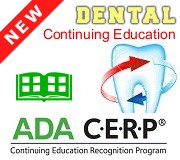| Diet and Head/Neck Radiology and Chemotherapy |

|
 |
 |
| Wednesday, 18 September 2024 14:26 |
|
Radiation and chemotherapy directed towards oropharyngeal cancer can cause oral mucositis and moderate to severe pain, xerostomia, and difficulty swallowing which may profoundly affect a patient’s dietary intake. Food and fluid restriction, if severe, is known to increase the risk of malnutrition and mortality. Thus, nutritional management following cancer treatment is an extremely important component of patient management.[1] Weight loss secondary to diet dysfunction is also problematic as post therapy weight loss due to cancer treatment and subsequent oral problems is estimated to add an additional 10% to the pre-therapy weight loss experienced by patients with oropharyngeal cancer. The evidence suggests that a greater than 20% loss of total body weight can increase the risk of additional toxicity and treatment time and, in addition, produce a poorer clinical outcome; there is also increased risk of mortality. Consequently, early intervention with nutritional supplementation via enteral support via nasoenteric or percutaneous endoscopic gastrostomy has been recommended in patients at high risk for weight loss.[2 Patients have been shown to benefit from nutritional counseling following cancer treatment. And dentists can help their medical colleagues by providing dietary recommendations following radiation and chemotherapy. In terms of post-treatment quality of life, there is evidence that nutritional deterioration and intake deficits may be more relevant than the initial stage of the cancer itself. According to one study, after 3 months, nutritional counseling appeared to be the single best method of several strategies appearing capable of sustaining a meaningful effect on patient outcome. This study also found that early use of a mixture of foods and textures also modulated outcomes.[3] Although no specific guidelines address the appropriate types of foods and textures that might be recommended to patients with oropharyngeal cancer, for those able to take food by mouth, a bland soft diet and liquid diet supplements are considered the most reasonable approaches for providing adequate nutritional. Mucositis is worsened by acidic, spicy, excessively salty, or course and dry food, and these products should be avoided.[4] Oral moisture can be improved with sips of water, ice chips, or popsicles.[5] In cases of severe mucositis, parenteral nutritional support via a Hickman line may be necessary. The need for enteral support appears to be directly related to the extent of tumor involvement and severity of the initial disease, particularly for treatment extending beyond 12 months.[6] An important consideration with respect to diet is posttreatment dysphagia[6] and its effect on what has been termed silent aspiration. Recent evidence suggests that this may be a more serious problem than previously thought. In one study, the problem was found to occur in 65.9% of patients. With respect to food consistency, it was found to occur in 65% of subjects who were taking thin fluids, 35% taking thick fluids, 12% on a pureed diet, and 6% on a soft diet.74] Regardless of initial considerations regarding diet following radiation and chemotherapeutic treatment in patients with oropharyngeal cancer, the evidence suggests that there is an inverse relationship between reduction in chronic mucositis and improved oral intake and diet over time.[8] Dentists have an important part to play in the dietary management of post-radiation and chemotherapy patients. 1. Wood K. Audit of nutritional guidelines for head and neck cancer patients undergoing radiotherapy. J Hum Nutr Diet. Oct 2005;18(5):343-51. [Medline]. 2. Colasanto JM, Prasad P, Nash MA, Decker RH, Wilson LD. Nutritional support of patients undergoing radiation therapy for head and neck cancer. Oncology (Williston Park). Mar 2005;19(3):371-9; discussion 380-2, 387. [Medline]. 3. Ravasco P. Nutritional support in head and neck cancer: how and why?. Anticancer Drugs. Aug 2011;22(7):639-46. [Medline]. 4. Nathaniel S Treister, DMD, DMSc. Chemotherapy-Induced Oral Mucositis Treatment & Management. Available at http://emedicine.medscape.com/article/1079570-treatment#a1130. 5. Lalla RV, Sonis ST, Peterson DE. Management of oral mucositis in patients who have cancer. Dent Clin North Am. Jan 2008;52(1):61-77, viii. [Medline]. 6. Chapuy CI, Annino DJ, Snavely A, Li Y, Tishler RB, Norris CM. Swallowing function following postchemoradiotherapy neck dissection: review of findings and analysis of contributing factors. Otolaryngol Head Neck Surg. Sep 2011;145(3):428-34. [Medline]. 7. Ng LK, Lee KY, Chiu SN, Ku PK, van Hasselt CA, Tong MC. Silent aspiration and swallowing physiology after radiotherapy in patients with nasopharyngeal carcinoma. Head Neck. Sep 2011;33(9):1335-9. [Medline]. 8. Pauloski BR, Rademaker AW, Logemann JA, Lundy D, Bernstein M, McBreen C. Relation of mucous membrane alterations to oral intake during the first year after treatment for head and neck cancer. Head Neck. Jun 2011;33(6):774-9. [Medline]. |





 Dental Health
Dental Health